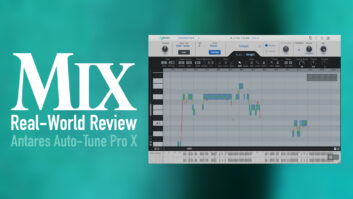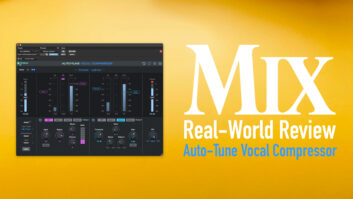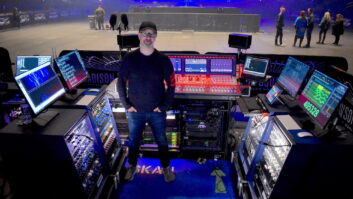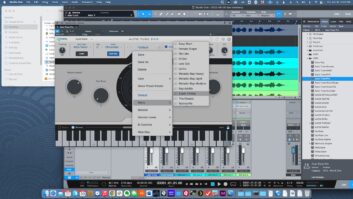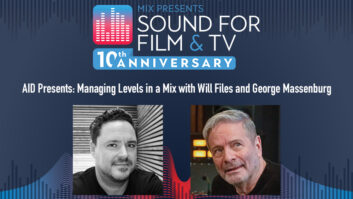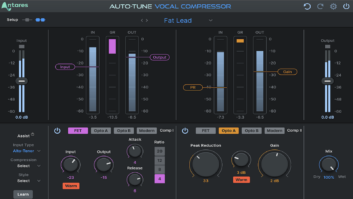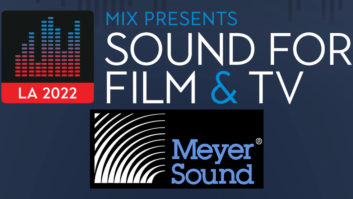Auto-Tune hit the world in 1997, and Antares has continued to update its software since then. With version 8 now adding a portfolio of real-time features, the controversy about pitch correction—which has not abated over the years—is sure to get another boost. Nor is Antares alone; Celemony’s Melodyne has a devoted following, and you can find pitch correction in programs from companies like Waves and iZotope, as well embedded in mainstream DAWs.

It’s gotten to the point where it’s chic to say you don’t use pitch correction, but the reality is it’s pervasive—and there’s much more to the story than whether it’s “good” or “bad.”
Why are people who add compression, EQ, reverb, delay and other processing—and also use punching and comping on vocals—so adamantly opposed to pitch correction? The process seems different because it changes the vocal itself, rather than adding an effect or edit to an existing vocal. However, level and phrasing are just as important to vocals, with the former covered by compression and the latter by cutting and moving words or phrases, either manually or with quantization. You can argue that all of these substitute for technical ability.
Overall, there are four main reasons why pitch correction has become a target:
● It’s been overused as an effect. It was cool when Cher did it more than 15 years ago; the “hard correct” effect wasn’t so cool after the 10,455th time it graced the airwaves. Any novelty sound that overstays the 15 minutes of fame to which it’s entitled will receive push-back.

● Pitch correction is a victim of its own success. It’s possible to add pitch correction so transparently no one can tell it’s being used—but then it doesn’t get credit for being transparent.
● It’s easy to get lazy and apply pitch correction so that it’s obvious. If a singer is so out of tune that fixing the pitch creates obvious artifacts, then the singer needs to punch in or redo the vocal. A related complaint is that pitch correction takes the human qualities out of vocals, but pitch correction should be done manually and judiciously—who would want B. B. King’s note bends to be quantized to perfect pitch? The problem is those who think vocals need to have perfect pitch.
● Pitch correction is considered a crutch that allows people with no talent to give the perception they can sing. But the same objection was leveled against multitrack recording, EQ, and even reverb when those processes became mainstream.
What we often don’t see are the valid reasons to use pitch correction. I appreciate pitch correction, and here’s why:
● I don’t pitch correct any thing unless it sounds “wrong,” which isn’t the same as “off-pitch.” If you make a vocal perfect, people lose interest. Consider that note Madonna reaches for and misses on “Ray of Light” that makes it sound like she’s really letting loose. I would never have remembered that note if had been corrected. The pitch may not have been “right,” but it did not sound “wrong.”
● Pitch correction frees vocalists to be more spontaneous. Before pitch correction, part of my concentration while singing was distracted by being careful about pitch. After pitch correction, I concentrated solely on the performance because I knew I could always punch or pitch-correct any errant notes—but the irony is that my pitch became better when I wasn’t worrying about it.
● You can use pitch correction to “uncorrect.” Sometimes despite recording three or four background voices, they sound like one big voice. Using pitch correction to make some notes slightly sharp or flat gives a bigger sound—and quickly—without conventional ADT effects.

The bottom line is that any anti-pitch correction sentiment may have more to do with a backlash against those who apply it indiscriminately and therefore give the process a bad name, but sometimes there may also be an element of elitism—“I don’t need pitch correction.”
Well, no one needs pitch correction; civilizations were certainly capable of making music without it. But as audio professionals, our goal is not to further any personal agenda but to deliver a wonderful experience to the people who listen to music. Those who take the time to really learn how pitch correction works, know how to make it sound natural, and know when to apply it and when to leave it bypassed can create a better musical experience for the listener. If that’s not what we’re all about, then why are we here?
